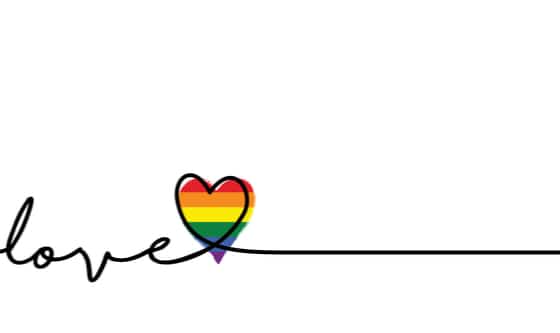
IDAHOBIT – A History
May 17th is internationally recognised as IDAHOBIT, which stands for the International Day Against Homophobia, Biphobia, Interphobia and Transphobia. How did this day happen?
May 17th, 1990, is a day that went down in history as the day the World Health Organization (WHO) removed homosexuality from its Classification of Diseases and Related Health Problems. To commemorate this, IDAHOBIT was created in May 2004 as a way to signify the importance of changing times and underline the need to protect people against all forms of stigma – stigma that had been perpetrated for far too long.
Bringing awareness to the discrimination and repression of the LGBTQIA+ communities all over the world also made room for positive and much-needed dialogue with policymakers, opinion leaders, the media, and the general public. IDAHOBIT is now celebrated in over 130 countries worldwide, including 32 countries out of the 76 where same sex relationships are still illegal.
The IDAHO Committee originally managed the initiative but as of 2005, it is now a collaborative management effort from the International Lesbian and Gay Association (ILGA), the International Gay and Lesbian Human Rights Commission (IGLHRC), the World Congress of LGBT Jews, and the Coalition of African Lesbians.
Initially known as IDAHO, the campaign name has since changed over the years with the letters for transphobia, biphobia, and interphobia being added as the need was felt. It is not a centrally trademarked name, though, and different communities can communicate and rally behind whichever acronym they feel is most applicable to their locale best. An example is Nepal, who celebrate the day as the International Day Against Queer/MOGAI-phobia (MOGAI stands for Marginalized Orientations, Gender Alignments, and Intersex bodily variations).
This is a quick breakdown of the phobias represented in the acronym:
Homophobia: This is deliberately excluding someone because of their attraction to their own gender, which can manifest in ways such as using offensive terms to refer to or insult a person’s sexual preference e.g. ‘faggot’ or ‘shoga’, or using phrases like ‘no homo’. This also includes physical violence directed at homosexuals because of their preference.
Interphobia: This is showing negative feelings or attitudes towards people who possess biological sex traits that are not necessarily male or female, and can also be both. This is common in the medical field where intersex people can be denied treatment, because medics may not be sensitised, or exposed, to the different biological variations that people can come in.
Biphobia: This is the refusal to accept or the abuse of people who are attracted to two (or more) genders.
Transphobia: Similar to homophobia, transphobia is abuse or hatred directed towards someone whose gender is shown as or presented as something different from what it directly appears to be, whether by their own choice or by what they would feel is misrepresentation. Transpeople receive a lot of hatred, especially abroad when they want to use bathrooms they feel are for their gender, for example. In Kenya, transpeople have been ridiculed multiple times when they want to get basic human rights, such as the right to change your name to the gender you identify with.
May 17 has grown over the years and is a globally recognized movement, receiving official recognition from many European countries, as well as Latin America. Taiwan is the most recent country, and the first in Asia, to legalize same-sex marriage, which occurred on May 17th, 2019.
The theme for this year’s IDAHOBIT celebrations is Break The Silence. It encourages the converging of numerous ideas and initiatives to contribute in fulfilling the freedom and equality for all sexual and gender minorities. Due to the Covid19 pandemic, events planned to mark the IDAHOBIT will be held virtually in different countries across the world. If you would like to take part in any of these events, you can find them listed here. A day is not enough to be in solidarity with any minority group, but May 17 is a great start and reminder of how much is still left to be done for the fight for equality.
How will you be celebrating IDAHOBIT?
